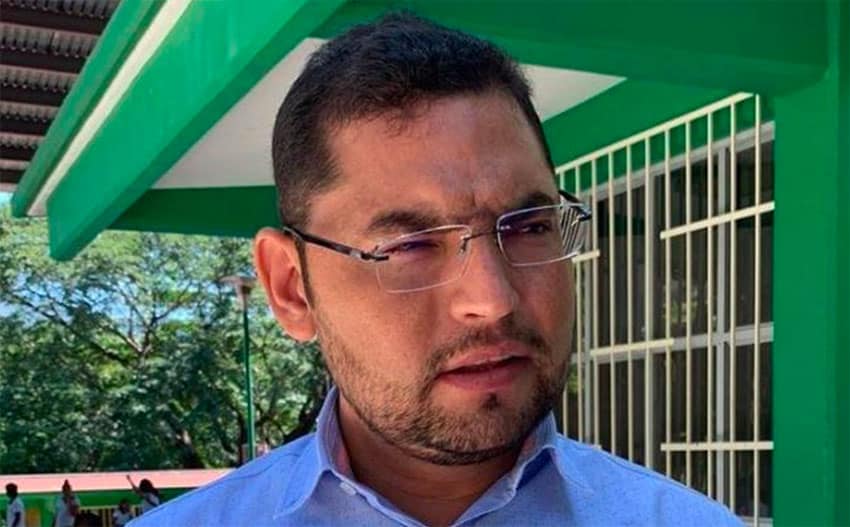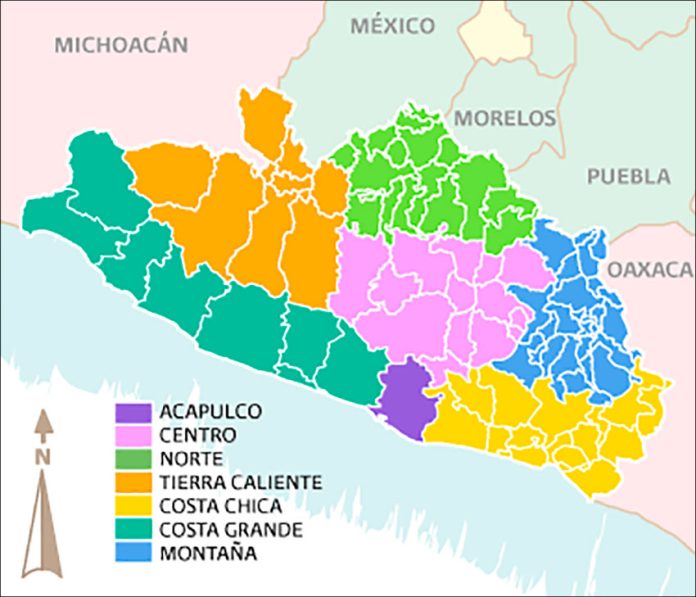Organized crime achieved their electoral objective in the Tierra Caliente region of Guerrero: the candidates they backed – most of whom represented Mexico’s once omnipotent Institutional Revolutionary Party (PRI) – won the June 6 elections.
In the region located in northern Guerrero on the border with both Michoacán and México state, criminal organizations only allowed certain candidates to campaign in the lead-up to the elections, according to a report published Monday by the newspaper El Universal.
“And they were the ones who won the June 6 elections,” the report said. “Some people were not even allowed to register, others couldn’t start their campaigns and a few more quit halfway [through the campaign period] due to pressure. There were no murders but there were kidnappings, torture and intimidation as well as threats against aspirants and candidates.”
Criminal groups also told the region’s businesspeople whom they should support in the elections, El Universal said.
According to Guerrero and federal authorities, the Jalisco New Generation Cartel (CJNG), the Familia Michoacana and a cell of the Caballeros Templarios, or Knight’s Templar cartel, are among the crime groups that operate in Tierra Caliente. The two latter groups are allied and dominate Guerrero’s “hot lands,” El Universal said.
The newspaper reported that halfway through the campaign, a Tierra Caliente politician – who spoke to El Universal on the condition of anonymity due to security concerns – predicted that the PRI would sweep the elections in the region.
“He didn’t make the prediction according to electoral preferences at the time, his reasoning was more primitive: survival,” the report said.
“They [the criminal groups] have already given the indication that only the PRI candidates will be allowed to campaign, and in [the municipality of] Tlalchapa, Morena [is the preferred party],” the politician said, adding that other candidates were warned they would face “problems” if they didn’t follow the order to stay off the campaign trail.
As the unnamed politician predicted, the PRI – along with its ally, the Democratic Revolution Party – did indeed sweep elections in the region, prevailing in all municipalities except Tlalchapa and Zirándaro, where Morena won.
PRI candidates also won the state and federal electoral districts that are located in the area and the party’s candidate for governor, Mario Moreno Arcos, was more popular among Tierra Caliente voters than Morena’s Evelyn Salgado, who triumphed in the gubernatorial race.
Asked before the elections what would happen if a candidate not endorsed by organized crime won, the unidentified politician responded: “Nothing, they’ll sit him [or her] down and tell him [or her] what to do.”

If elected officials such as mayors are going to be controlled by crime groups even if they weren’t their preferred candidates, why intimidate them in the first place, the politician was pressed by El Universal.
“Surely they owe favors to those from the PRI,” he responded. “What favors?” the newspaper probed. “Protection,” the politician replied.
In Zirándaro, Morena party Mayor Gregorio Portillo was kidnapped in March, allegedly by the Familia Michocana, and told not to stand for reelection.
“They abducted me, they tortured me to oblige me not to seek the candidacy for reelection for one reason: they’re annoyed because we didn’t give them money,” he said.
“Installing someone who will follow their orders, who will yield to their rules is necessary for them. In my case, as there was no way to do that through dialogue, there was the necessity to show me they have the capacity to kill me,” said the mayor, who was released but hasn’t set foot in Zirándaro for two months out of fear for his life.
Portillo told El Universal that he was caught in the middle of a dispute between the CJNG – a cartel to which he reportedly has links – and the Familia Michoacana.
“What they asked me was to use the government to move the army from one place to another. At that time, they didn’t ask me for money, they asked me to intervene, to negotiate with the army, to ask for security in certain areas that benefited them. As I didn’t do it, they got annoyed,” the outgoing mayor said.
“… Tierra Caliente … is the only region where there is such extreme [criminal] control that other candidates [not endorsed by organized crime] are not allowed to participate [in the elections]. It’s understandable – the municipalities are a source of funding [for narcos]. The majority of the councils are controlled by crime,” he said.
While Portillo was ordered not to stand for reelection, Morena remained the favored party of at least one organized crime group in Zirándaro. The PRI-PRD candidate, Jaime Torres García, had to flee the municipality halfway through the campaign due to threats, El Universal said.
In the neighboring municipality of Coyuca de Catalán, Morena mayoral candidate Rey Hilario Serrano was also threatened by organized crime and ultimately forced out of the election. The same thing happened to Morena candidate Francisca Baltazar Bravo in Pungarabato.
In Cutzamala, Citizens Movement (MC) party candidate Marilú Martínez Núñez was kidnapped along with her two children, her mother and two members of her team just days before the election. She was released but only after her captors forced her to withdraw from the election.
Rosa Jaimes López, the PRI candidate and wife of current Mayor Timoteo Arce Solís, won the mayoral election in Cutzamala. The head of the MC in Guerrero, Adrián Wences Carrasco, claimed that Arce could have been behind the abduction.
Four MC candidates were forced to withdraw their candidacies in the Tierra Caliente region due to threats by organized crime, according to Wences.
Criminal groups also interfered in the elections in other parts of Guerrero, El Universal reported, noting that 55 candidates had to be accompanied by police as they campaigned due to fears they could be the target of attacks. Two mayoral pre-candidates, one who aspired to the PRD candidacy in Chiapa and a Morena party hopeful in Pilcaya, were murdered in Guerrero late last year.
Despite the well-documented political violence in the southern state, President López Obrador claimed last Thursday that “no candidate suffered an attack” in Guerrero during the election season.
The day after the elections, the president asserted that organized crime groups “behaved very well” as citizens cast their ballots, while just days before voters went to the polls, he claimed there was “peace and tranquility” in the entire country.
However, the campaign period leading up to the elections was the most violent on record in Mexico, according to risk analysis firm Etellekt, which tracks electoral violence, with more than 1,000 acts of aggression against politicians and candidates, including more than 100 murders.
With reports from El Universal
